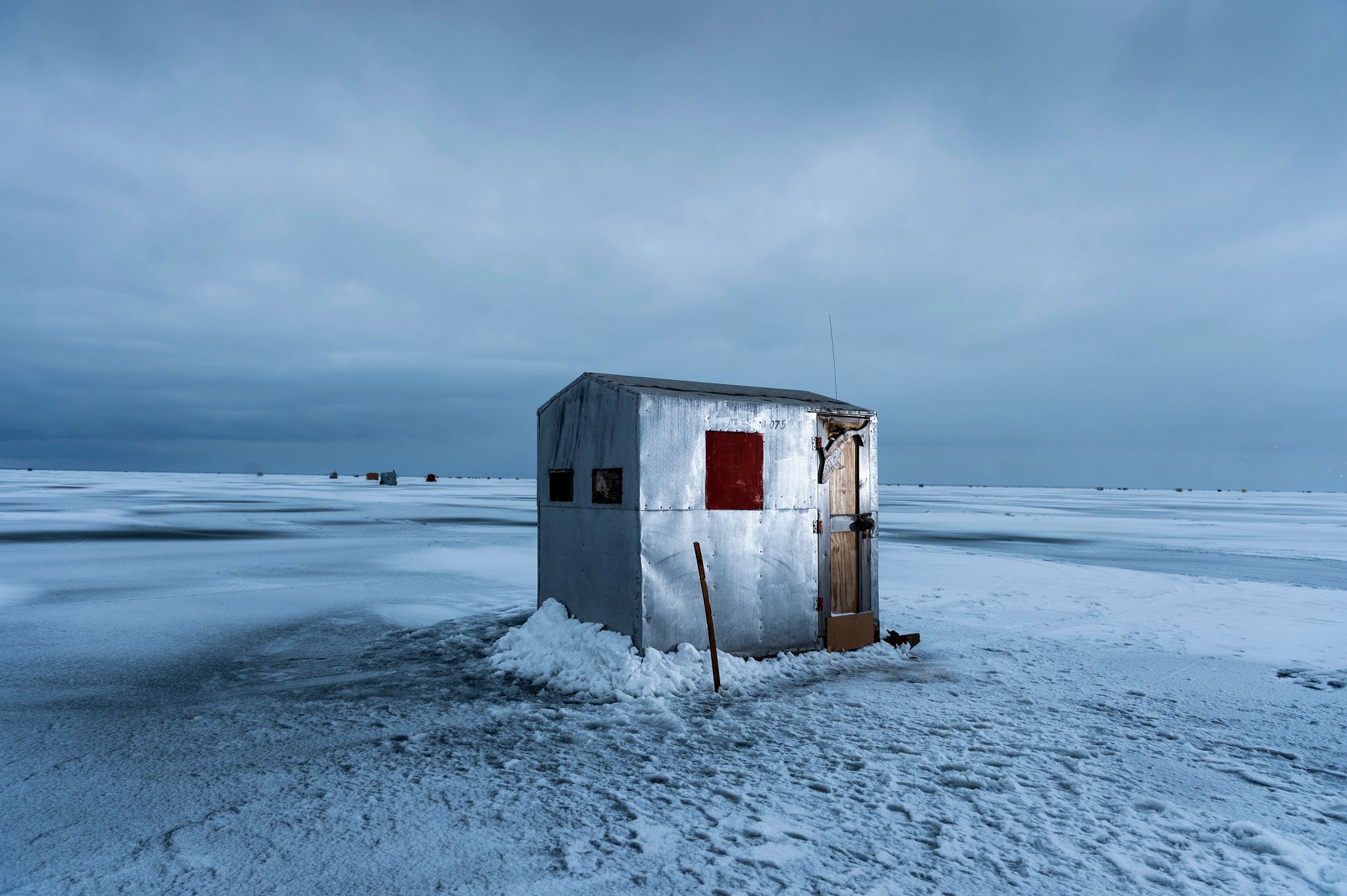Contact: DNR Office of Communications
DNRPress@wisconsin.gov
Permanent Ice Shanty Removal Dates Approaching
Portable Ice Shanties Still Allowed After Deadlines
 Photo credit: Wisconsin DNR/David Nevala
Photo credit: Wisconsin DNR/David Nevala
MADISON, Wis. – The Wisconsin Department of Natural Resources (DNR) reminds ice anglers that it’s time to remove their permanent ice shanties from Wisconsin’s waters.
The deadlines to remove permanent ice shanties, or those that are not removed daily, on inland and boundary waters are:
- Wisconsin – Iowa boundary waters by Feb. 20
- Wisconsin – Minnesota boundary waters by March 1
- Inland waters south of Highway 64 by March 5
- Wisconsin – Michigan boundary waters by March 15
- Lake Michigan, Green Bay, Lake Superior and inland waters north of Highway 64 by March 19
Owners having difficulty removing their shanty should seek help from local fishing clubs, vendors and other anglers.
The removal deadlines are to ensure shanties are removed and to avoid the additional costs and hazards of shanties breaking through the ice.
The DNR reminds ice anglers that no ice is ever 100% safe. The DNR does not monitor ice conditions, so anglers should check with local fishing clubs and bait shops for current ice conditions.
Here are a few ice safety tips to remember:
- Carry a cell phone, and let people know where you are going and when you’ll return home.
- Wear proper clothing and equipment, including a life jacket or a float coat, to help you stay afloat and to help maintain body heat.
- Wear ice creepers attached to boots to prevent slipping on clear ice.
- Carry a spud bar to check the ice while walking to new areas.
- Carry a few spikes and a length of light rope in an easily accessible pocket to help pull yourself – or others – out of the ice.
- If you fall in, remain as calm as possible. While attempting to get out of the water, call for help. Anyone who attempts to rescue you should use a rope or something similar to avoid falling through themselves.
- Do not travel in unfamiliar areas or at night.
Any owners who don’t take responsibility for removing their shanty should be reported to the DNR Violation Hotline online or by calling or texting 1-800-TIP-WNDR or 1-800-847-9367.

